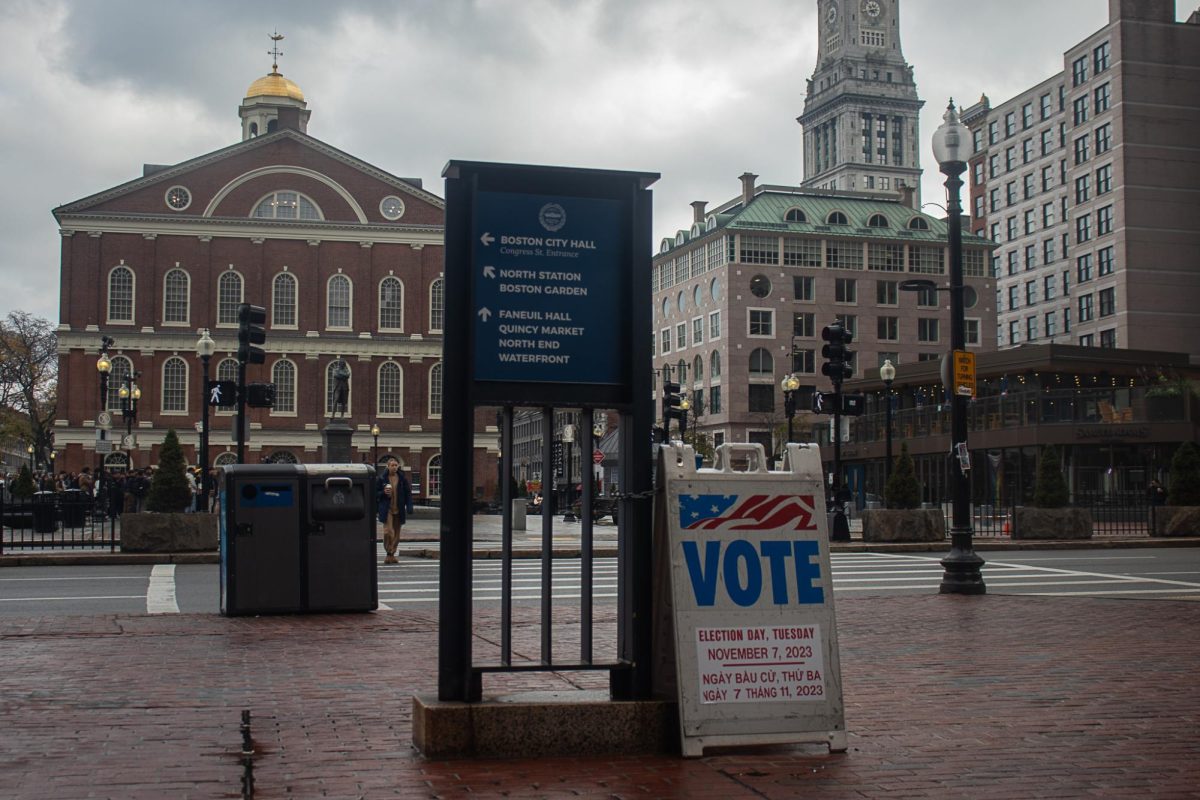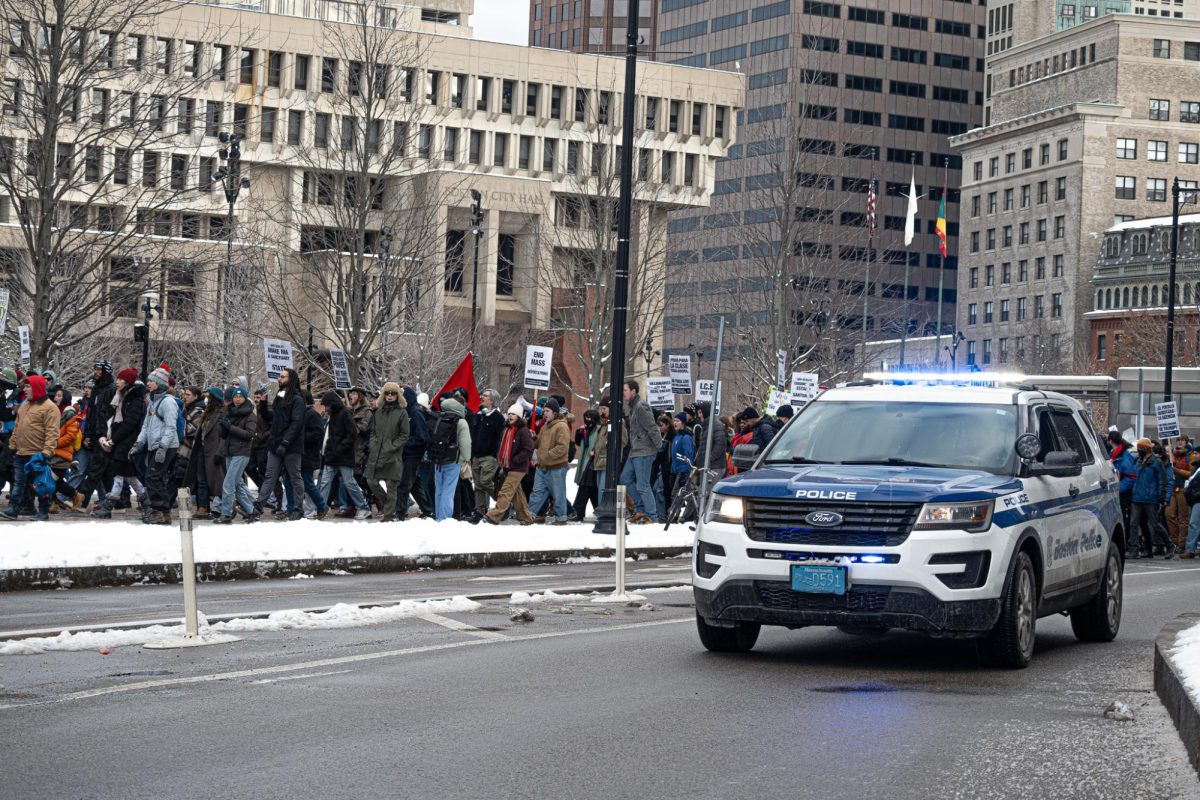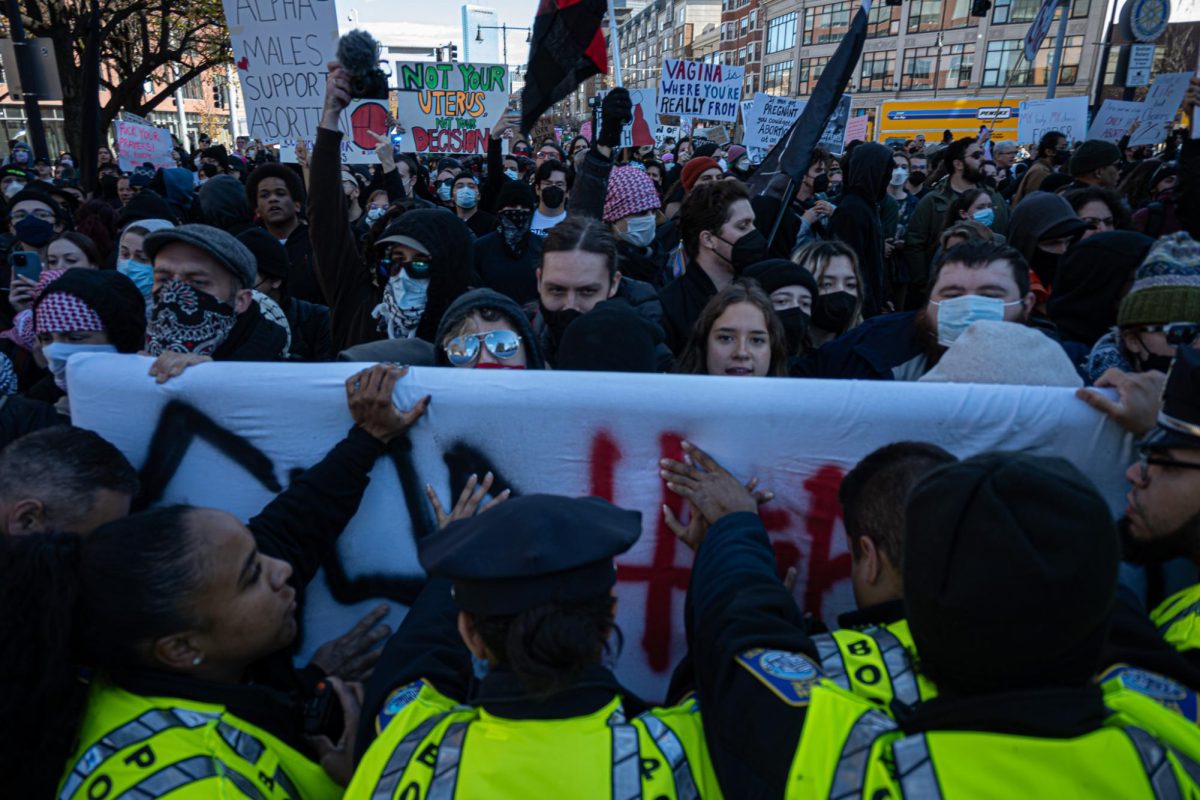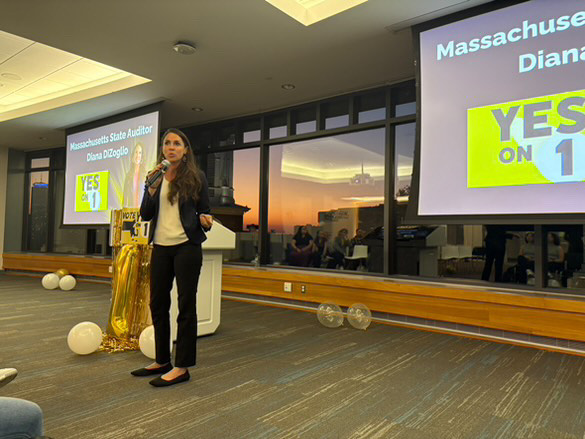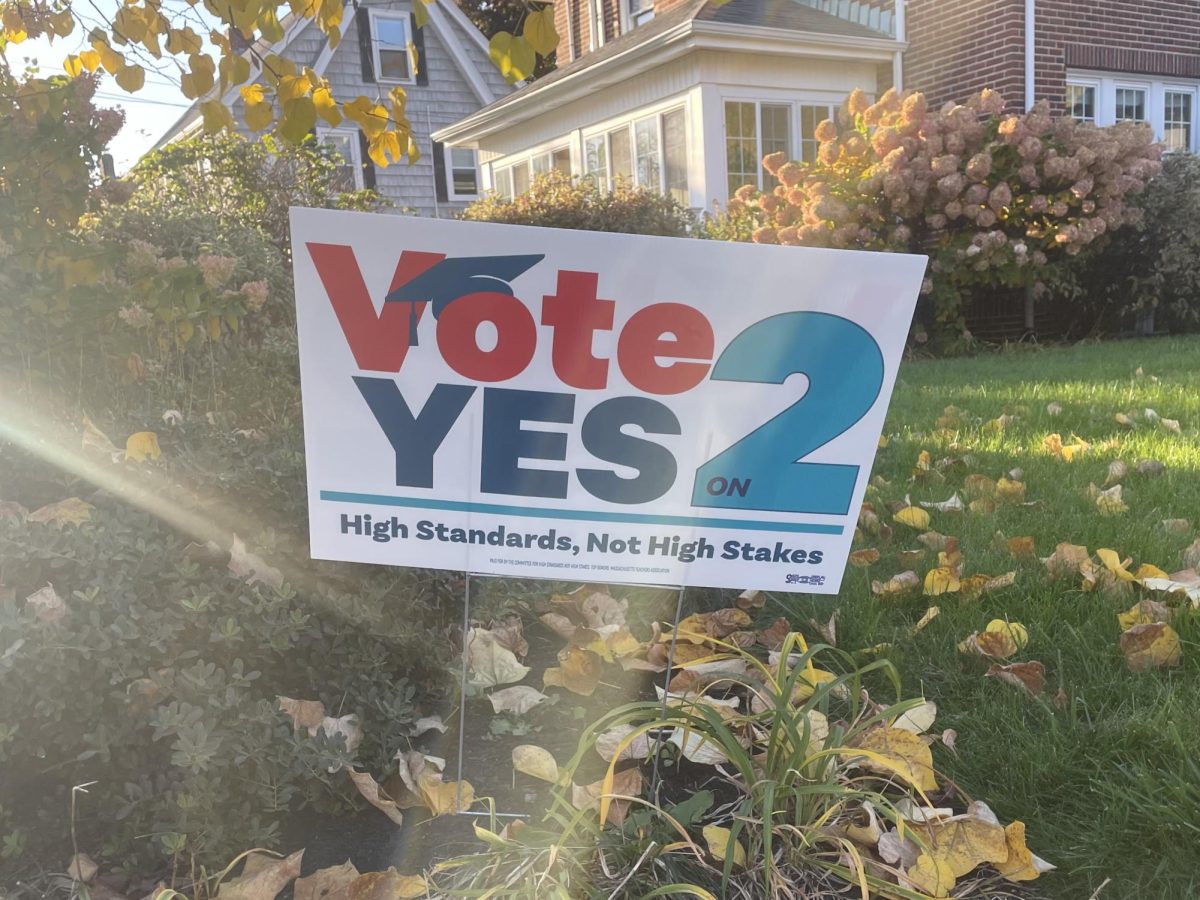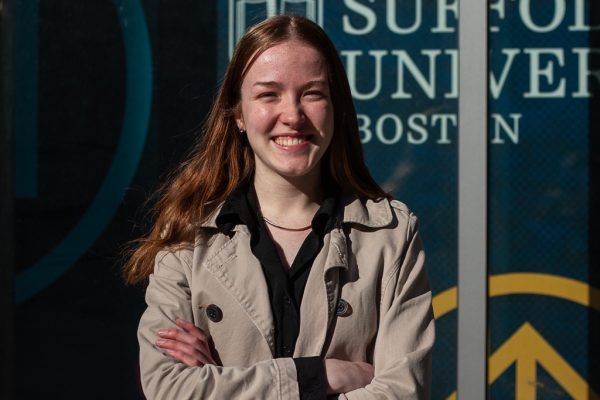With election day in the rearview mirror, Bostonians look to welcome both new and returning councilors to City Hall.
Leading up to the election, Suffolk Votes, an organization on campus dedicated to voter education and civic engagement, held events and spoke to classes about how to get involved politically. This included running events for National Voter Education Week Oct. 2 – 6.
Suffolk Votes Scholar Kate Wieneke emphasized the importance of voting in local elections. She said voters have the most influence on their elected officials in smaller-scale elections like for city council.
“The majority of things affecting your daily life are at the municipal level, maybe the state level,” Wieneke said.
Voters voiced their choice for the four at-large positions, with Ruthzee Louijeune, Erin Murphy, Julia Mejia and Henry Santana set to serve the city starting in January. Louijene won with 20.20% of the vote, followed by Murphy with 19.89%, Mejia with 18.04% and Santana with 15.01%.
Louijene grew up in Mattapan and Hyde Park and attended Boston Public Schools. Elected to the city council in 2021, she is the first Haitian American elected to represent Boston citywide. She is the chair of the Committee of Civil Rights and Immigrant Advancement and vice chair of the Committee on Government Operations and the Committee on Housing and Community Development.
Murphy, a Dorchester native, was a schoolteacher in the Boston Public Schools for 22 years. Also elected in 2021, she has been a strong advocate for unions in Boston. Murphy is vice chair of the Committee on Education and Committee on the Community Preservation Act.
Mejia was born in the Dominican Republic and moved to Dorchester with her family when she was five years old. Initially elected in 2019 by a single vote, she is the first Afro-Latina to serve on the City Council. Mejia is the chair of the Committee on Education, the chair of the Committee on Government Accountability, Transparency and Accessibility as well as the Chair of the Committee on Labor, Workforce and Economic Development.
Santana was born in the Dominican Republic and immigrated to Boston as a child, growing up in Mission Hill. He worked as a field director for former City Councilor Kenzie Bok’s election campaign and later on her staff as her director of operations and Mission Hill and Fenway liaison. He most recently served as Mayor Michelle Wu’s inaugural director of her Office of Civic Organizing.
The Suffolk University College Democrats endorsed their picks for Councilor-At-Large, throwing its support behind incumbents Mejia and Louijeune and newcomer Santana. Matthew Marcil, the organization’s president, said he was planning to vote in alignment with the endorsements based on interactions with the three candidates and their campaign promises.
“I’m going to be voting for the incumbents. Julia Mejia, Ruthzee [Louijeune] and Henry Santana,” said Marcil. “I’m very sat with those three, I’ve spoken to them in person and worked with their campaigns, and they’re all very good people.”
Voters supported John FitzGerald to represent the city’s third district with 58.56% of the vote. Upon January’s inauguration, FitzGerald will take the seat left open by the retirement of Councilor Frank Baker. FitzGerald, a Boston native who now calls Dorchester home, has served the city as deputy director of Imagine Boston 2030, director of finance for the Office of Economic Development and most recently as deputy director of real estate operations.
Enrique Pepén won 52.37% of the vote to represent District Five. The concession of Councilor Ricardo Arroyo following the election’s September primary left the door open for Pepén, a newcomer to the Council. Pepén, a first-generation American and Suffolk alum, was born and raised in Boston. He has served as a co-chair of the Regional Transit Authority Advocates Coalition and executive director of the Boston Office of Neighborhood Services.
Benjamin Weber claimed the victory with 60.3% of the vote from District Six, filling the seat left open by another controversial primary loss by Councilor Kendra Lara. Weber, a resident of Jamaica Plain, began his career as a lawyer, primarily focusing on class-action litigation for fair wages, as well as working as an assistant attorney general under former Attorney General Martha Coakley.
Incumbent Tania Fernandes Anderson won the District Seven seat with 70.28% of the vote. Fernandes Anderson was born in Cape Verde and came to live in Roxbury as a child. Most recently, she has worked as the executive director of Bowdoin Geneva Main Streets, a Dorchester non-profit.
Incumbent Sharon Durkan of District Eight claimed 70.44% of the vote to maintain her seat. Durkan was voted onto the council in July’s special election, where she faced the same opponent. Durkin, who resides in Boston’s Beacon Hill neighborhood, served as chair of the Boston Ward Five Democratic Committee alongside owning a small business.
Wrapping up the contested district councilor races, incumbent Liz Breadon will hold the District Nine seat for another term, winning the district with 66.23% of the vote. Breadon immigrated to Allston-Brighton from Northern Ireland. She began her career as a physical therapist, working in the United Kingdom’s National Health Service. Breadon has spent over two decades as an activist in Boston, serving on the board of the Brighton Allston Historical Society and the Presentation School Foundation.
Incumbents Gabriella “Gigi” Coletta, Edward Flynn and Brian Worrell maintained each of their seats, running unopposed for districts one, two and four, respectively.
Coletta is an East Boston native elected in 2022 and formerly served as chief of staff to City Councilor Lydia Edwards.
Flynn was unanimously elected to be the City Council president in 2022. He was a probation officer at Suffolk Superior Court before being elected to City Council in 2017. Flynn served in the U.S. Navy and Navy Reserve for 24 years.
Worrell was born and raised in Boston and was a small business owner before being elected to the Council in 2021.
The City of Boston reported 78,172 ballots were cast in the election, or 17.45% of registered voters in Boston, according to 2022 enrollment records from 2022.
Material from previous reporting by The Suffolk Journal was used in this article.
Journal Contributor Jack Gosselin contributed to the reporting of this article.


